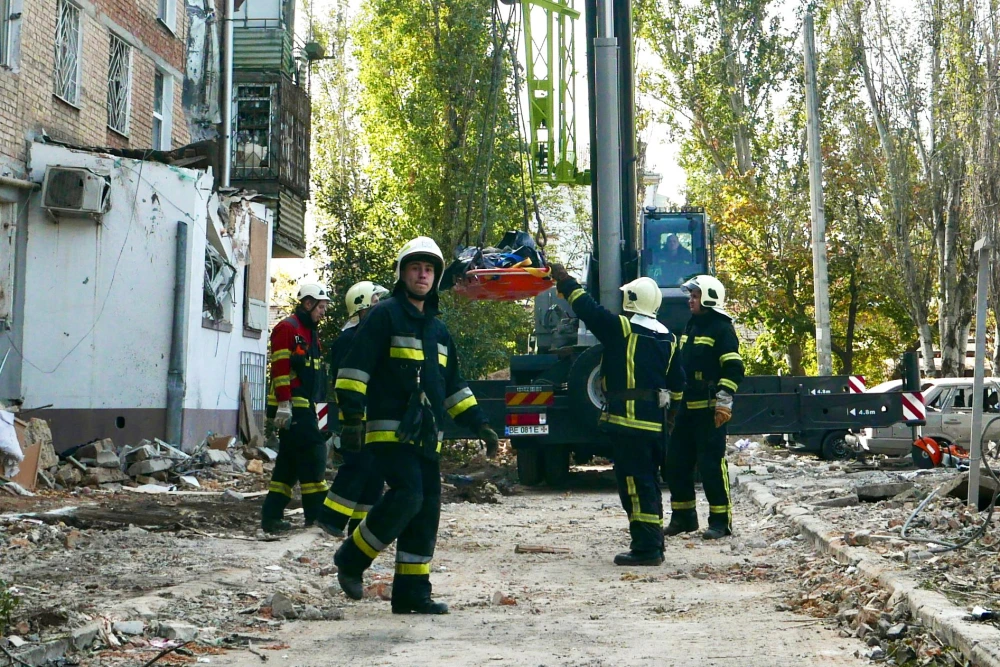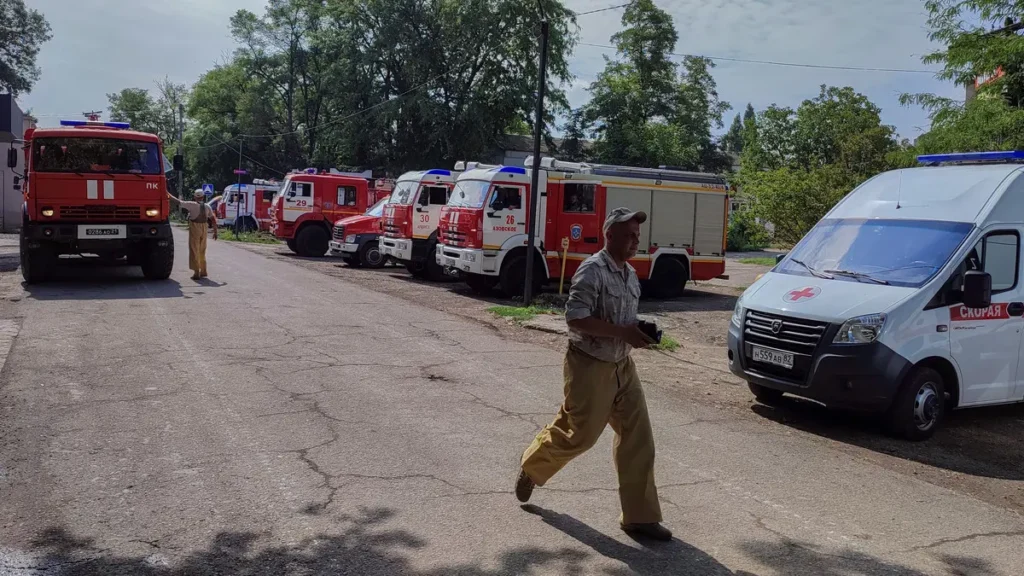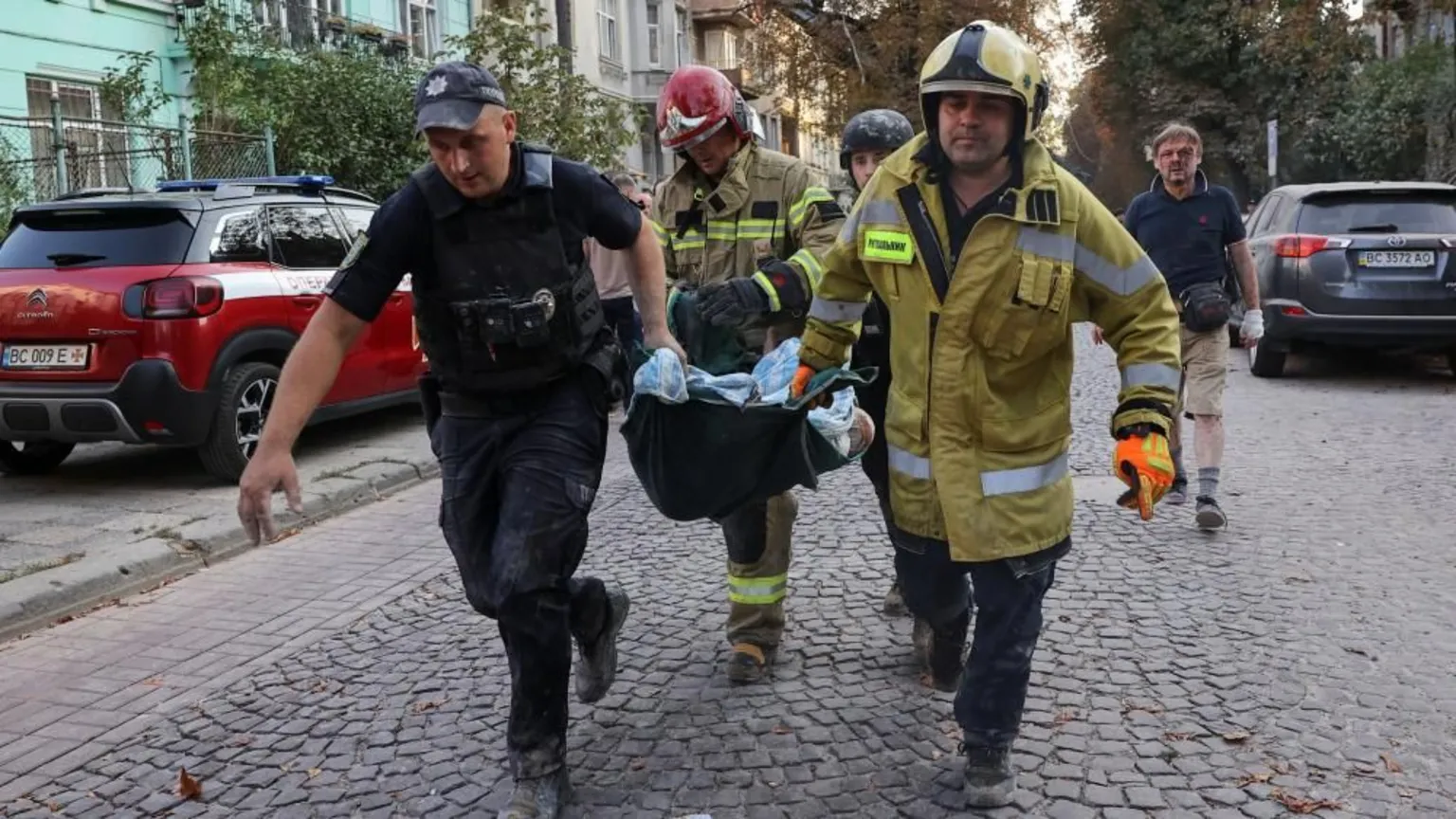In a devastating development, the city of Lviv in western Ukraine was hit by a series of intense attacks by Russia, resulting in the tragic death of seven people, including three children. The attacks have shocked the city and the entire country, reflecting the brutal conflict that has been raging in Ukraine for the past two years.
City in mourning
On Wednesday morning, Lviv Mayor Andriy Sadovyi reported that the city was targeted by a combination of drones and hypersonic missiles. The deadly attack claimed the lives of a child, two little girls aged nine and fourteen, and a woman working as a midwife. The attacks caused extensive damage to the city, with more than fifty buildings destroyed, including homes, schools, and clinics.

The sense of loss could be clearly seen as rescue workers rushed to search for survivors in the rubble. The city, known for its cultural heritage and relative calm during the ongoing conflict, has been badly shaken by the violence. The damaged structures included several residential buildings and essential public facilities, further adding to the city’s misery.
A country under siege
The attack on Lviv comes amid a wider wave of attacks across Ukraine. Explosions were also reported in the capital city of Kyiv, as air defence systems were activated to intercept incoming Russian missiles. This escalation in violence highlights the persistent threat facing cities across the country, despite varying levels of intensity in different areas.
In Kryvyi Rih, another city hit by Russian attacks, a hotel and surrounding blocks were damaged, resulting in five people being injured. Mayor Oleksandr Vilkul expressed relief that there were no casualties in Kryvyi Rih, emphasising the community’s resilience in the face of the ongoing invasion.
The Ukrainian military has placed the entire country on air alert, evidence of the widespread and indiscriminate nature of the attacks. The constant air raid sirens and subsequent scramble for safety reflect the constant state of alert that has become a grim reality for many Ukrainians.

The impact on Poltava
This tragic incident in Lviv follows a recent horrific attack on a military institution in Ukraine’s central city of Poltava. On Tuesday the Poltava Military Communications Institute was hit by missiles, killing at least 50 people and injuring many others. The intensity of the attack can be gauged from eyewitness accounts from cadets and survivors, who described scenes of chaos and devastation.
Mykyta Petrov, a 26-year-old cadet who recently joined the institute, recalled the horror of the missile attacks. He described how the first missile fell shortly after 09:00 am (06:00 GMT), followed by a second explosion just seconds later. The rapid sequence of events gave those present little time to take shelter, highlighting the severe limitations of warning systems.
Ukrainian MP Oleksiy Goncharenko criticised the effectiveness of air raid warnings, questioning the feasibility of evacuating high-rise buildings within the short timeframe given. The psychological impact of witnessing such violence and loss of life has been profound, affecting not just the immediate victims but also the wider community.
Government response and international aid
In the wake of these tragic events, Ukrainian President Volodymyr Zelensky has vowed retribution against those responsible, calling the perpetrators “Russian scoundrels.” His statements reflect broader calls for better protection of Ukrainian cities and enhanced air defense capabilities to repel retaliatory strikes against Russian targets.
The Ukrainian government has launched an investigation to determine whether adequate measures were taken to protect military personnel at the Poltava institute. Poltava regional governor Filipp Pronin condemned the attack as a “cunning and cynical Russian attack” and said efforts were ongoing to rescue those trapped under the rubble.

Amid the turmoil, international support for Ukraine continues to grow. On Wednesday, Irish Premier Leo Varadkar is scheduled to meet President Zelensky to announce a new aid package for Ukraine. Ireland has pledged 43 million euros in aid, including 3 million euros allocated through Irish Aid for humanitarian aid, rehabilitation, and reconstruction efforts. This new financing underscores the international community’s continued commitment to support Ukraine in its time of need.
The human cost
The human cost of the conflict in Ukraine is deeply felt in every town and village affected by violence. The loss of innocent lives, especially children, is a stark reminder of the devastating impact of the conflict on the civilian population. The destruction of homes, schools and essential services further compounds the suffering of people caught in the crossfire.
